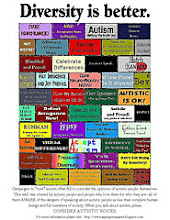Most interesting Google search question of the week

‘How long does it take to teach an autistic kid to tidy toys?’
What a corker!
Whilst I’m tempted to launch in with my size tens, I think I would have to own up and say that without asking a few questions of my own, I should have no idea. What would I need to know? Their age, both chronological and developmental, just for starters. It would be helpful to know their current means of communication, verbal, PEC’s, sign, although not essential. I think my biggest question would be, ‘has he or she learned how to play?’ This might see a rather strange kind of a query. Surely if there are toys that need tidying, then there must be someone playing with them? A good point, but not necessarily true. There is a big difference between dumping out a trough full of toys onto the floor for easy access, and actually playing with them.
A child who has learned to play doesn’t actually need any toys because ordinary household objects can be playthings with a little imagination. A wooden spoon can be an oar or a magic wand. This ability is innate in many people, but not in others. Some children can pretend that a Superman figure is a baby doll, or that a baby doll is a dog, or that a dog is a horse. Other people, with help and encouragement can learn these things too.
Still doubtful? It may help to observe the child in question. Does he really play or merely repeat movements, stereotypical, over and over again. Similarly when children line up objects or toys. Then there is also scripting when a child can repeat a storyline from a book of film with exactitude. Sadly, once these behaviours are recognized for what they are, all too often this is the spark that people wish to extinguish. For my children, these behaviours, and others, were a starting point, something to ignite and work with, rather than against.
How else can you tell whether play skills are under developed? An easy test it to take the child to a toy shop. Some children dive into the store and head straight for their favourite spot. Others browse everything in awe, flit from shelf to shelf. Still others refuse to get into the car in the first place and have no interest in going to any shop, let alone a toy shop.
On arrival, some of these children prefer to play with the electronic doors, many cannot go inside because of the lighting, the noise, the busyness and are completely overwhelmed. Some may find the shop entertaining because they can read the labels or examine price tags, as numbers are generally enthralling wherever they happen to be. In fact they can be so enthralling that this particular child refuses to leave the store.
So, my initial answer would have to be, first teach your child to play. I like to think that play, is children’s work. Once they have learned to play, then teaching anything else is so much easier. I’m almost tempted to say that teaching play skills is even more important that attempting to teach speech to the non-verbal. This is because a child may have fabulous speech facility but still be incapable of play, whereas once a child can play, then teaching speech is a prolonged and life long game, but I’m more than open to opposing views.
These are just a few hints. It may be that your child already plays delightfully, in which case, learning to tidying up will be an absolute breeze. If on the other hand, you recognize something here, then I can only say that all is very far from lost. Not so long back my own non-verbal children did not play. Now they play and they speak. What’s more, they have achieved the pinnacle of success in my book, namely, pretend play, where the only limits are the outer edges of our own imaginations.
Still don’t "believe" me. Would I lie to "you?"




